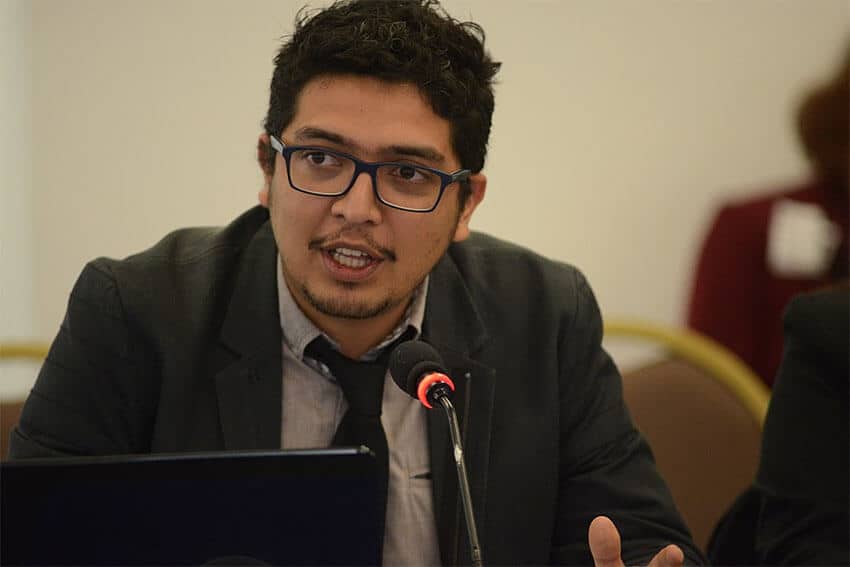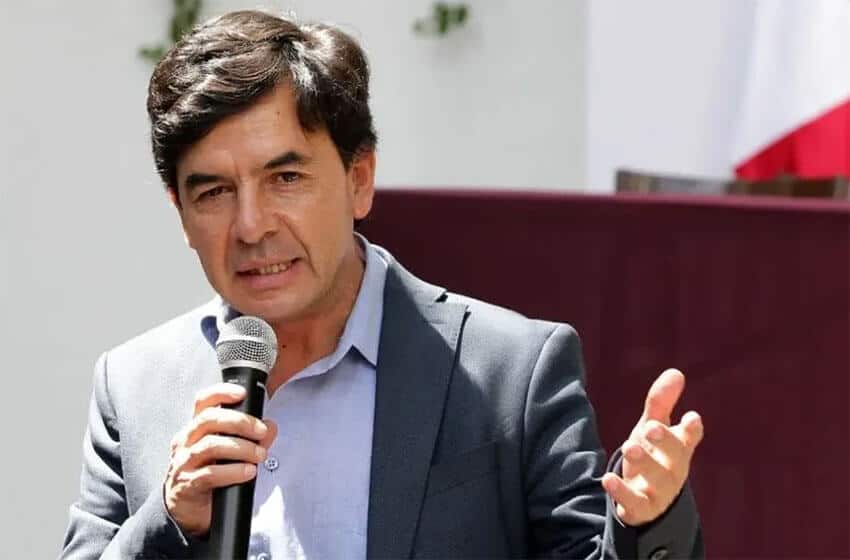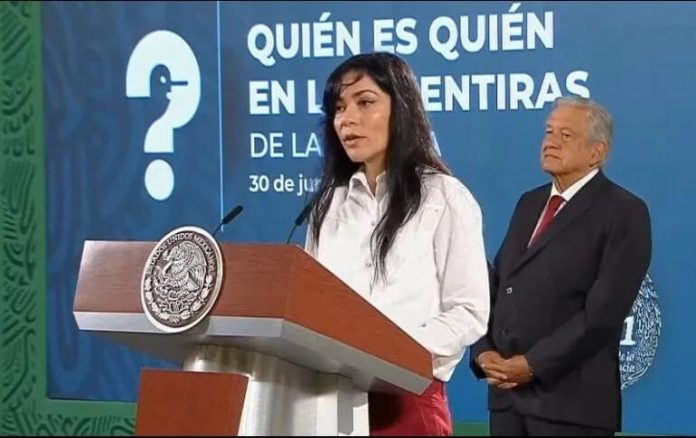A high-ranking official with the Inter-American Commission on Human Rights (IACHR) has once again urged the federal government to terminate its weekly fake news exposé sessions.
A “Who’s who in the lies of the week” segment has been presented by Ana Elizabeth García Vilchis every Wednesday at President López Obrador’s morning press conference since the middle of last year.
News stories that are typically critical of the government are routinely dismissed as false by García as López Obrador – who frequently attacks sections of the media himself – looks on.
The federal government’s public shaming of the media has been blamed for encouraging hostility toward – and even attacks on – journalists who are critical of the president and his administration.
In a telephone interview with the news magazine Proceso, the IACHR’s special rapporteur for freedom of expression said he had an obligation to speak out against the “media lies” segment given the recent increase in violence against media workers in Mexico, the most dangerous country in the world to practice journalism, according to Reporters Without Borders.

“Today, in the face of the escalation of violence it’s up to me to ask for the suspension of this space because it pollutes the strong messages that should be heard in support of journalistic work and in rejection of violence against journalists,” Pedro Vaca Villareal said.
The official asserted that the fake news exposé is at complete odds with “democratic standards of freedom of expression” and “sends mixed messages about the government’s intention to guarantee freedom of the press.”
His remarks came after four media workers were murdered last month, and nationwide protests denouncing violence against journalists on January 25.
Vaca previously called on the government to scrap the fake news debunking sessions shortly after they began last June.
In this week’s interview with Proceso, the special rapporteur claimed that García has presented inaccurate information on “repeated occasions.”
“[There is] nothing more ironic than a space that seeks to combat disinformation … being confused [itself]. And that has happened. … It’s frankly very strange for a democratic society to have spaces for government auditing of the press, an audit that is erratic, that has had to correct itself many times, that is … sometimes capricious, that is … one-sided and … selective,” Vaca said.
He also said that after more than five months the government still hasn’t responded to a formal request from the IACHR to explain the goal and methodology of the “Who’s who in the lies of the week” segment.
“… It’s regrettable, especially because a lot of time has passed,” said Vaca, a Colombian lawyer now based at the IACHR’s Washington D.C. headquarters.
He was also critical of the government’s response to the murder in Michoacán on Monday of Roberto Toledo, who collaborated with the news website Monitor Michoacán.
Jesús Ramírez, the president’s spokesman and communications coordinator, condemned the murder of the journalist in a Twitter post, before saying in a subsequent tweet that the victim was in fact an assistant in a legal practice rather than a journalist, a supposed clarification interpreted by many as an attempt to downplay the dangers faced by media professionals.
Vaca asserted that Ramírez had been “erratic” and “rash” and remarked that “the high authorities of the state don’t only have to be very careful about what they say but also the moment in which they say it.”
Vaca urged the López Obrador administration to recognize the “crisis” of violence affecting journalism in Mexico.

“… We’re talking about a very serious issue and that’s why [I extend] an invitation [to the government] to recognize the crisis and to act accordingly,” he said.
The official, who spoke to Proceso on Tuesday, suggested that instead of this week’s “media lies” segment, the government could report on the legal situation of the case of Tamaulipas journalist Luis Roberto Cruz Martínez, who was murdered 22 years ago.
“It would be very good if in a morning news conference, such as that [to be held] tomorrow, they could tell the press what is being done to overcome impunity. Not in the murders of recent days, which we understand merit an investigation, but in those that happened 22 years ago,” Vaca said.
Almost 150 journalists have been killed in Mexico since 2000, according to the Committee to Protect Journalists, a New York-based non-governmental organization.
The country is currently living “a crisis of violence within a sustained tragedy,” Vaca said, adding that the situation reached “a peak – a very acute and delicate moment” in January.
“It’s very important that the state send very clear messages in accordance with the right to freedom of the press,” he said.
“I invite the spokespeople of the Mexican government to reflect on the rashness of some of their presentations. We’re talking about work – journalism – that is momentous for democratic life,” Vaca said.
“… [The government and the media] can have differences, it’s natural. Of course they can criticize each other. But journalists are being killed and it’s very important that the authorities reject the violence and recognize the legitimacy of the work [they do].”
